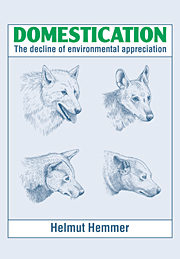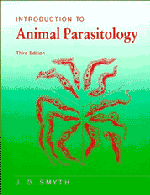Domestication
The Decline of Environmental Appreciation
£48.99
- Editor: H. Hemmer, Johannes Gutenberg Universität Mainz, Germany
- Translator: Neil Beckhaus
- Date Published: August 2005
- availability: Available
- format: Paperback
- isbn: 9780521349802
£
48.99
Paperback
Looking for an inspection copy?
This title is not currently available on inspection
-
A unified approach to the study of domestic animals is an important step in achieving a proper understanding of the nature of domestication. In this book, the author has successfully brought together data from many different fields. It emphasises the importance of domestic animals to the development of human civilization and demonstrates how human control of domestication may result in the planned production of distinct kinds of domestic animals, bred specifically to improve food production, build up alternative methods of land use or provide new laboratory animals for use in scientific research. The text concentrates on the importance of changes in animal behaviour to the process of domestication and describes how one of the characteristics of domesticated animals is a lack of the same kind of perception of their surrounding environment as is shown by wild animals. New results and ideas are presented and the book demonstrates how the practical application of a theoretical strategy for domestication resulted in the production of the first primitive, but truly domestic, fallow deer.
Customer reviews
Not yet reviewed
Be the first to review
Review was not posted due to profanity
×Product details
- Date Published: August 2005
- format: Paperback
- isbn: 9780521349802
- length: 220 pages
- dimensions: 244 x 170 x 11 mm
- weight: 0.362kg
- availability: Available
Table of Contents
Preface to the German edition
Preface to the English edition
1. Why are domestic animals kept?
2. Diversity of appearance
3. The origins of domestic animals
4. Changes in behaviour
5. Stress
6. Acquisition and processing of information
7. Transmitter substances for information processing
8. Coat colour and behaviour
9. Coat colour selection
10. Limits of endurance
11. Taming and return to the wild
12. New domestications
13. Domestication and evolution
14. Overall synopsis
Selected reading
List of photographs taken by the author in public zoos and animals parks
Index.
Sorry, this resource is locked
Please register or sign in to request access. If you are having problems accessing these resources please email [email protected]
Register Sign in» Proceed
You are now leaving the Cambridge University Press website. Your eBook purchase and download will be completed by our partner www.ebooks.com. Please see the permission section of the www.ebooks.com catalogue page for details of the print & copy limits on our eBooks.
Continue ×Are you sure you want to delete your account?
This cannot be undone.
Thank you for your feedback which will help us improve our service.
If you requested a response, we will make sure to get back to you shortly.
×








